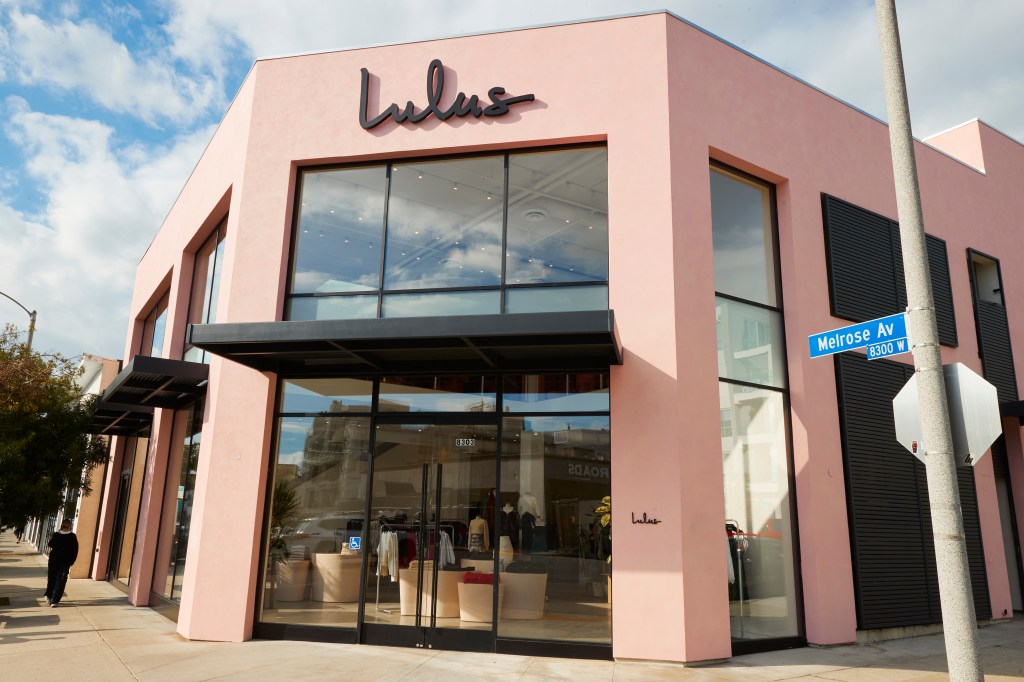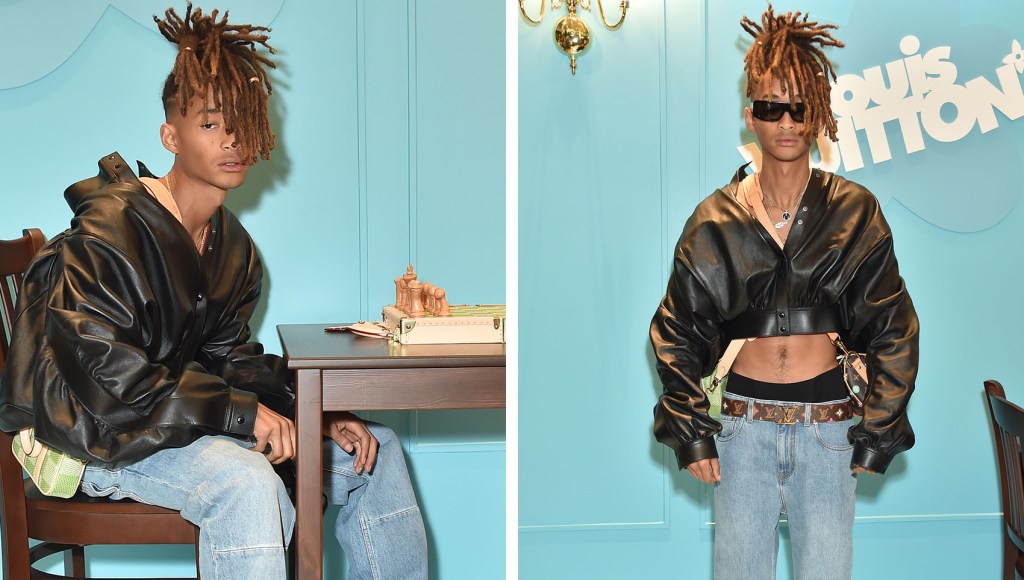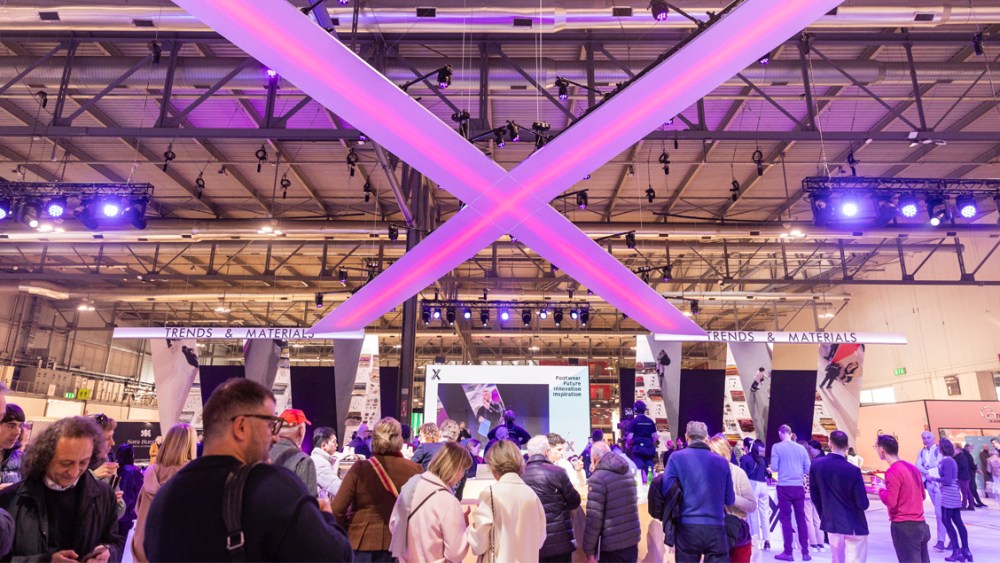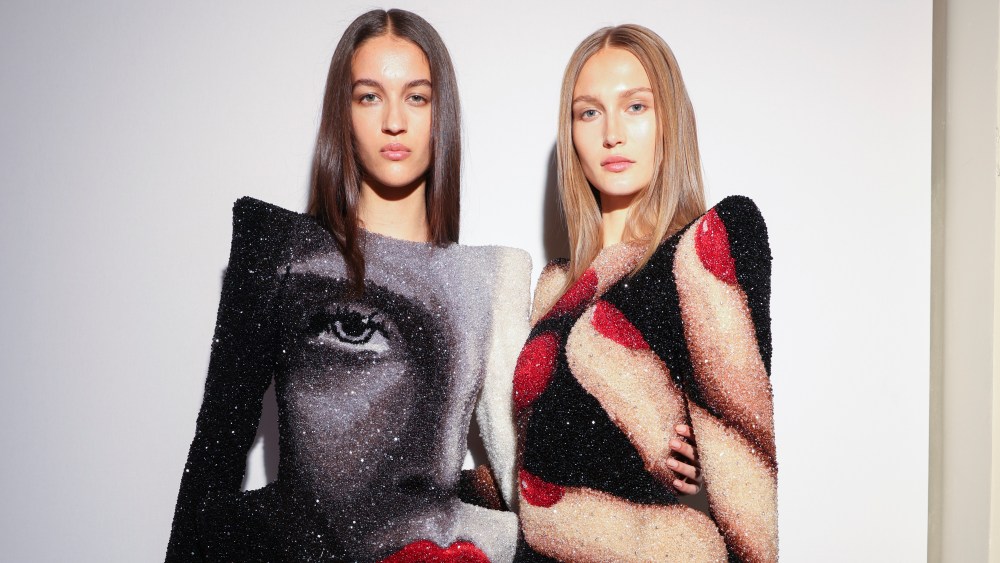Fifteen years ago, Lulus, a clothing label known for providing a bit of luxury at a reasonable price, shuttered its stores and went totally digital.
Now the label has reentered the retail scene in a big way with an expansive 6,000-square-foot store that opens Friday at 8303 Melrose Avenue. It is across the street from Vivienne Westwood and a block from the famous Instagrammable Paul Smith pink wall.
“This has been a few years in the making,” said Crystal Landsem, the company’s chief executive, explaining the COVID-19 pandemic slowed plans down.
In 2019, the brand had a pop-up store on Melrose Avenue and customers lined up around the block. “Our biggest issue then was not having enough dressing rooms,” the CEO remembered. That shouldn’t be a problem at the current two-story location where new merchandise arrives every week and caters to a core customer who is primarily college educated and between 25 and 35 years old.
The bright new venue is airy with curved display fixtures, mosaic patterns and pops of neon and brushed silver. The first floor is filled with shoes, accessories, must-have separates, dresses and going out looks. The second floor is filled with holiday dresses and next year will be home to an appointment-only bridal boutique. The second floor also will be used for events, such as meeting with influencers or gathering for focus groups.

“This is not just a store but an experiential place for our customers to interact with the brand in person,” said Landsem, who joined the Chico, Calif.-based company in 2015 as its chief financial officer. Last March, she took over as CEO.
Lulus will use the new retail location to test, learn and react to what consumers want. And it will guide Lulus’ model of introducing as many as 200 new stock keeping units a week to its merchandise whose average retail price falls between $50 and $60. It might also be a road map for more stores in areas where Lulus is popular, such as the East and West coasts and larger cities.
Opening a new store comes at a challenging time for the company, founded in 1996 by mother-daughter team Debra Cannon and Colleen Winter with a vintage store called Lulu’s Fashion Lounge in Chico, about 160 miles of San Francisco. With the advent of the Internet and social media sites, Lulus in 2008 transitioned to a digital-only business model that occasionally opened pop-up stores.
The company grew rapidly with investments from several private-equity investments, including $120 million raised in 2018 from venture capital firm IVP and the Canada Pension Plan Investment Board, an investment management firm. Two years ago, Lulus went public, trading on the NASDAQ.
For the first nine months of this year, Lulus saw its revenues drop 21 percent to $280.2 million compared with $348.6 million during the same period last year.
Lulus also experienced a $12 million net loss compared with a nearly $9 million profit during the first nine months of last year.
Some of this has been caused by customers recently shifting away from full-price product purchases to sale items.
Lulus also has seen fast-fashion companies, including Shein and Temu, nibbling at its customer base. But Landsem doesn’t blame the fast-fashion ventures for Lulus’ revenue decline.
First, she said, there have been macroeconomic headwinds pushing consumers to think harder about making purchases that aren’t necessary. “Also, being under invested in newness and over reliant on our older reorder products that have driven so much of our business for the last two years is really the drive of the negative comps,” the CEO said in a recent third-quarter earnings call. “In our opinion, that is an easy fix that might take a couple of quarters. However, we do recognize a shift in the competitive environment as aggressive fast-fashion retailers are gaining more traction with U.S. consumers, especially over the last few years.”
But she is optimistic that Lulus’ customers will continue to recognize the value and quality of the company’s products as well as the community surrounding the brand. “To that end,” she said, “we’re focused on continuing to most effectively build awareness for our attainable luxury product offerings and further set ourselves apart from excessively trend chasing brands.”
.



